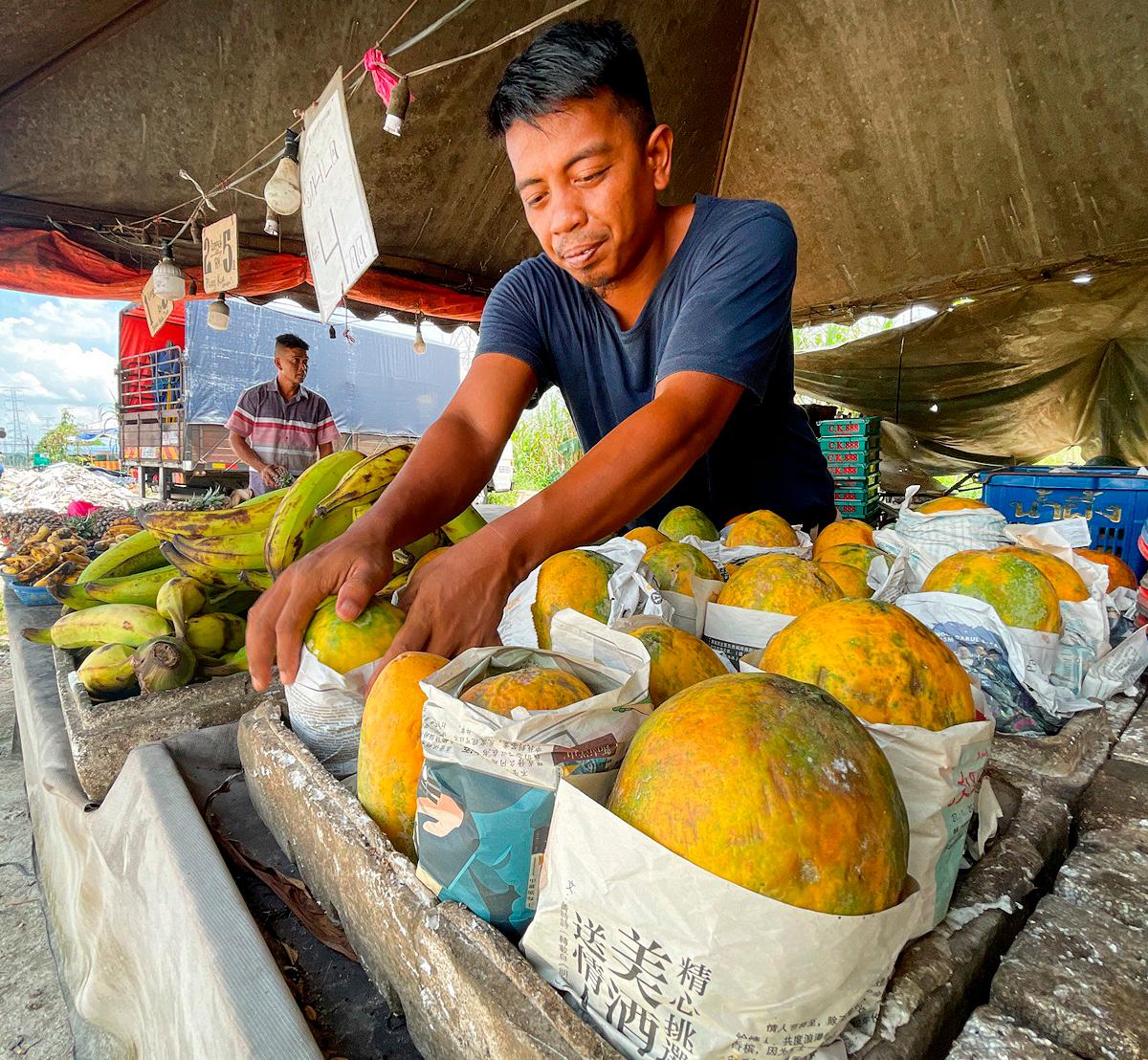PETALING JAYA: The Federation of Malaysian Consumers Associations (Fomca) has urged authorities to ban calcium carbide for fruit ripening after an explosion, likely linked to the chemical, damaged a fruit shop in Bandar Baru Klang and wrecked nearby vehicles.
The blast has heightened focus on the potential health and safety risks posed by the chemical in Malaysia’s produce supply.
Fomca CEO and secretary-general Dr Saravanan Thambirajah described the practice as “illegal, unethical and a serious threat to public health”.
“This should not be happening in Malaysia. Fruits are a regular part of our daily diet.
“To allow a toxic and dangerous substance into the food chain for the sake of profit is unacceptable.”
Calcium carbide, an industrial chemical, releases acetylene gas when exposed to moisture – a gas that mimics ethylene, the natural fruit-ripening hormone. However, it also emits toxic compounds such as arsenic and phosphorus hydride.
“Scientific studies and health agencies worldwide have warned of its dangers.
“What makes this even more alarming is that consumers can’t tell the difference between naturally ripened and chemically ripened fruits. It creates an invisible health risk for everyone,” said Saravanan.
He pointed out that calcium carbide remains in use, particularly in informal markets, due to weak enforcement and low public awareness. This puts vulnerable groups such as children, the elderly and the chronically ill at risk.
He said it is a symptom of systemic failure in which enforcement is “fragmented”, with poor interagency coordination and penalties that are “too lenient to deter offenders”.
“There must be strong deterrents, including hefty fines and jail terms. Accountability must also extend to business owners and wholesalers who allow or engage in the practice.”
Saravanan proposed mandatory certification for fruit ripening facilities, allowing only food-safe ethylene gas in controlled environments.
Fomca also wants stricter inspections, routine chemical residue testing at markets and distribution centres and mandatory labelling of ripening methods to enhance transparency and consumer trust.
From a toxicological standpoint, Universiti Putra Malaysia Food Science Department food toxicologist Assoc Prof Dr Ahmad Faizal Abdull Razis said the dangers of calcium carbide use are well established.
“The chemical compound reacts with moisture to release acetylene gas, which triggers ripening – but it’s highly flammable and explosive.
“When stored improperly in Malaysia’s humid climate, it becomes volatile.
“The gas is not only highly flammable, but commercial-grade calcium carbide often contains dangerous impurities that pose serious health risks.”
Ahmad Faizal warned that consuming chemically ripened fruits can lead to various health issues.
“They include nausea, dizziness, headaches and abdominal pain. Long-term exposure may result in cancer, neurological damage and reproductive problems.
“Children, pregnant women and those with chronic illnesses are especially vulnerable.”
He acknowledged that the chemical is popular as it is low cost, fast acting and easily available, especially among small-scale vendors who may be unaware of its dangers.
“Safer methods do exist, such as using ethylene gas or ethephon in regulated ripening chambers. These are approved and safe.
“But access remains limited in rural areas, and many vendors can’t afford the equipment or training.”
However, Ahmad Faizal believes phasing out calcium carbide is entirely feasible.
“Other countries have done it. What’s needed is stronger enforcement, public education and support for safer methods.”
He urged authorities to carry out regular market inspections, impose stiffer penalties and offer subsidies or incentives to help vendors adopt safer techniques.
He also stressed the importance of awareness campaigns to educate the public on the dangers of chemically ripened fruits.









